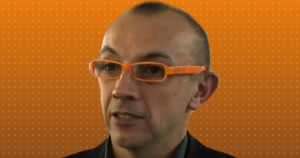Gillian Muessig is the President and Co-founder of SEOmoz, one of the world’s leading SEO resources and is a regular speaker at search marketing conferences around the world. She sits on the board of directors for two search marketing companies in India, and has just spent a month working and speaking in the country.
At the forthcoming International Search Summit, Gillian will be examining the developing search market in India and giving her recommendations on how marketers can make the most of the opportunities it offers. For a brief insight into what she will be talking about, keep reading!
Gillian, if you could give just one tip to search marketers working on global campaigns, what would it be?
Know your markets intimately. Pay attention to cultural, dialectic and even weather differences between regions, as well as countries. If you do not know what is going on in the local market, you may be trying to sell swimsuits to Miami during hurricane season or “pop” to New Yorkers, where the drink is called “soda”.
You are going to be speaking on “search in India” at the Summit, how quickly is it developing in terms of the web?
I see the Indian search market as being exactly like the US in 1999 – a wide open playing field. It is a little like the movie “Back to the Future” – we know exactly how things are going to turn out. We know who the winners are going to be. So many portals are yet to be built out. They only need someone to execute on the opportunity. That is incredibly exciting. But things are moving at breakneck speed – in the blink of an eye this landscape will change dramatically.
Are there any key differences between search in India and other emerging markets?
Yes. Significant differences. China is the other huge, emerging market and it is very exciting. But Google’s current embroilment demonstrates that a totalitarian system negates a robust international market place. There is a reckoning to be had in China.
Indians complain vociferously about government inefficiencies, corruption and red tape…just like other democracies. In other words, they are free to complain, to work better systems and create businesses in an open market atmosphere. With 1.2 billion people, the disenfranchised market is still huge but the massive amount of manpower is now being viewed as a value proposition rather than a liability, that is the beginning of enfranchisement. India is a democracy with a growing middle class and it is eagerly embracing technology.
What are the main opportunities, and challenges, for organisations targeting the Indian market?
The opportunities are what i referred to before – so many un-built major portals can be had for the taking. A professionally designed and operated political or finance portal could reap millions.
On a smaller scale, marketing itself is in its infancy here. The only “professional” ad campaigns on or offline are run by Tata and Reliant. If you can design a decent ad campaign, know how to design a landing page and write convincing copy, you can be the one-eyed man in the land of the blind. The market is w-i-d-e open.
When it comes to challenges, ecommerce is severely hampered by banking regulations that do not protect consumers. Trust issues are, again, similar to those we experienced in the late 1990s and turn of the century:
1) Vendor trust issues: How do I know that the product will be delivered and will be in good order when it arrives? Can I trust this vendor?
2) Financial protection issues: What protections do I have against someone stealing my credit card information or how do I get my money back if I do not receive a product in good working order or return it but get no refund from the vendor?
As a result, ecommerce companies may need to take orders over the phone, a more familiar process to the Indian market.
What value do you think the International Search Summit offers delegates?
This is my first time at the International Search Summit and I am very excited to be part of it. Times have been tough pretty much everywhere recently, and as a rule of thumb, I say: “When times are good, globalise. When times are bad, do it faster!” One can only hope to hold steady at best and will likely slip in your profits during tough times. One of the best ways to increase your chances of growth is to expand your market. Since your current customers are tightening belts or best holding steady, expanding your customer base now, while your competition is laying low is good for business now and will be great for business when the economy turns. International Search Summit? Be there!
The International Search Summit in May is focused on innovations – recent developments in search and social media which are changing online marketing. In your opinion, what is the most significant innovation in recent years?
That internet thing looks pretty exciting, right?
Seriously, social media was the watchword of 2009 and the innovation of “web 2.0” – interactive web – spawned massive human interactions online. That was certainly huge.
Mobile web, which involved innovations in hardware and software was and continues to be huge. I have talked about the web becoming mobile for some time now. With the rapid adoption of mobile PDAs I see this happening very quickly.
But the big thing I see now is the convergence of local-social-mobile marketing and the development of deep databases, the stuff that powers it. The quality of the experience of user search and the potential for marketers takes another giant leap forward when marketing messages can be delivered to geo-located internet connected devices at the request of the consumer. This is the stuff of marketers dreams!
Early Bird tickets are available for the International Search Summit. The Summit will be held at The Barbican Centre in London on 13 May 2010.
Gemma Houghton
Latest posts by Gemma Houghton (see all)
- Watch the recording: How to identify and seize growth opportunities in international markets - April 20, 2022
- International marketing recruitment: How to drive global growth amid The Great Resignation - February 23, 2022
- 5 trends to include in your 2022 international digital marketing strategy - December 21, 2021






[…] an interview earlier in the year, Gillian Muessig of SEOmoz said that “the Indian search market is exactly […]
[…] an interview earlier in the year, Gillian Muessig of SEOmoz said that “the Indian search market is exactly […]
Social comments and analytics for this post…
This post was mentioned on Twitter by andyatkinskruge: Emerging Markets – The State Of Search In India: Gillian Muessig is the President and Co-founder of SEOmoz, one of… http://bit.ly/cBOVYs…